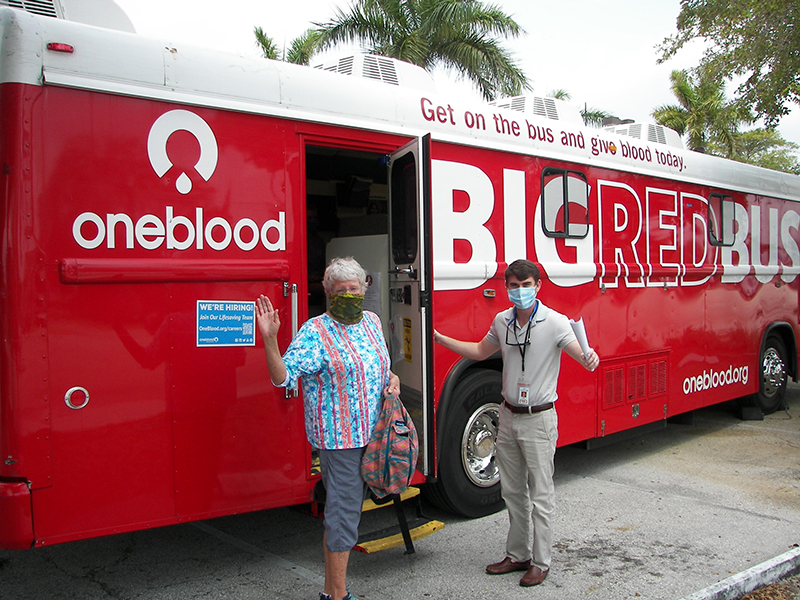Editor’s note: The Florida Health Care Association, which represents 691 nursing homes, has sent a letter to Gov. Ron DeSantis asking for sovereign immunity protection for facilities and workers resulting from treatments of COVID-19 under emergency conditions. The Florida Life Care Residents Association, which has 14,000 members, has opposed the request.
By Michael Freedland

While our health care workers have made overwhelming sacrifices and are deserving our absolute appreciation, insurance companies and other big businesses are taking improper advantage of this crisis. How? By hiring high-priced lobbyists to advocate for broad blanket immunity.
The immunity they seek has one purpose: to increase owner profits. It has nothing to do with helping patients nor health care providers. This completely unnecessary immunity has the potential to create an unreasonably dangerous health care environment.
Florida law already has numerous safeguards—in place long before COVID-19—which make it nearly impossible to file unwarranted claims. These provisions include:
- A pre-suit investigation is mandated as a prerequisite to file a lawsuit.
- An expert in the same specialty must review a patient case. This expert is then required to sign an affidavit confirming the substandard care.
- Hospitals and health care providers have immunity during treatment of an emergency, unless the patient can prove “reckless disregard for the consequences.”
- Immunity for doctors providing “free care” to the indigent population.
- Declared emergency immunity that bars claims for services being provided to such persons during the period of the declared emergency, for which no compensation is being sought.
Also, the federal CARES Act created additional adequate protections that are customized and aimed at issues relating to COVID-19, as opposed to the needs of insurance and big health care businesses. While the CARES Act provides immunity for volunteer health care workers and medical personnel who use covered medical devices, the 2005 PREP Act permits the DHHS secretary to identify which counter measures and covered persons would be eligible for immunity.
The designation (effective Feb. 4, 2020) provides immunity for counter measures that include “any antiviral, any other drug, any biologic, any diagnostic, any other device, or any vaccine used to treat, diagnose cure, prevent, or mitigate COVID-19, or the transmission of SARS-CoV-2 or a virus mutating therefrom, or any device used in the administration of any such product, and all components and constituent materials of any such product.” The DHSS secretary later broadened the immunity to give protection to people authorized to “prescribe, administer, deliver, distribute or dispense the covered countermeasures, and their officials, agents, employees, contractors and volunteers.” These new protections are specifically tailored to the issues created by the pandemic.
There is simply no evidence to suggest that Florida is now experiencing, nor will experience, an upsurge in frivolous claims. Therefore, the “need” for broad blanket immunity is an issue manufactured by insurance companies and private hospital corporations. Unfortunately, it is at the expense of consumers.
This lack of need for broad blanket immunity also applies to long-term care facilities. Our elders deserve to live in a safe and sanitary environment. Unfortunately, a variety of nursing homes have already been shut down or cited for shamefully unsafe conditions.
There is no reason, neither moral nor legal, to provide nursing homes with blanket immunity. Additionally, nursing homes already have enhanced protection similar to the medical pre-suit investigation requirement. They also have the protection mechanism of mandatory mediation as a prerequisite to filing a lawsuit. Filing an unwarranted claim against nursing homes is already exceedingly difficult.
Now is not the time to play politics and give insurance companies, as well as private hospital corporations the gift of broad blanket immunity. That is especially true when it is at the expense of people affected by incompetent care. It is also not the time to give a small group of substandard providers the ability to go fully unchecked. This would be unprecedented in the history of jurisprudence and the U.S. legal system.
This is the time when we look to our elected officials to demonstrate leadership and protect our nation’s most vulnerable. The focus should be on improving healthcare and working to protect all consumers. Attempting to take unfair advantage of this crisis, at the expense of those most vulnerable and injured by incompetence, with a goal to increase profits is both immoral and abhorrent.
Michael Freedland is the founding partner of Freedland Harwin Valori, PL, a personal injury and consumer justice law firm. He may be contacted at michael@fhvlegal.com.












